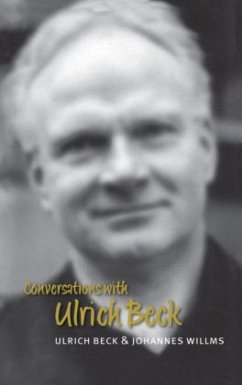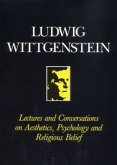In this new book, Ulrich Beck and the journalist Johannes Willms engage in a series of accessible conversations that reveal and explore the key elements in Beck's thought.
Ulrich Beck, one of the most important and influential contemporary social thinkers, reveals and expands his work in a series of conversations with journalist Johannes Willms.
These conversations shed new light onto the major themes in Beck's work and provide an insight into some of the commitments and beliefs that they rest upon.
Includes new thinking on the risk society and on globalisation, themes that have put him at the forefront of contemporary debates.
Witten in a clear and lucid way and thus ideal for anyone seeking to come to grips with Beck's work.
Hinweis: Dieser Artikel kann nur an eine deutsche Lieferadresse ausgeliefert werden.
Ulrich Beck, one of the most important and influential contemporary social thinkers, reveals and expands his work in a series of conversations with journalist Johannes Willms.
These conversations shed new light onto the major themes in Beck's work and provide an insight into some of the commitments and beliefs that they rest upon.
Includes new thinking on the risk society and on globalisation, themes that have put him at the forefront of contemporary debates.
Witten in a clear and lucid way and thus ideal for anyone seeking to come to grips with Beck's work.
Hinweis: Dieser Artikel kann nur an eine deutsche Lieferadresse ausgeliefert werden.
"Every now and then a new way of thinking about the social world occurs. And once that happens it is difficult to imagine how sociology had managed without that new way of thinking. ....Ulrich Beck's concept of risk society ...was a kind of revelation. It provided for sociology a way of speaking of the physical world and of its risks that brought in a striking array of new topics. In effect it enabled people to speak of things, indeed in a way to "see" things, that they had been trying to speak of and to see, but the where the concepts had been chronically lacking." John Urry, Professor of Sociology, Lancaster University








